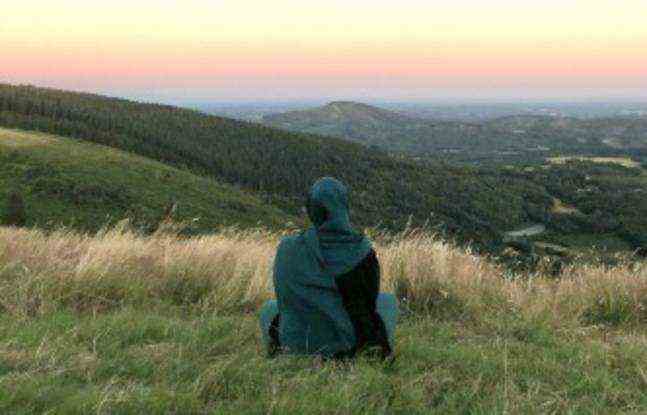Volunteers from the Lallab association during a workshop – Lallab
Take back the story that concerns them. This year, the anti-racist feminist association Lallab, is launching its fourth edition of “Muslim Women’s Day”, from March 26 to 27.
After an edition in 2018 devoted to the media treatment of Muslim women, then a second in 2019 dedicated to their education and last year on their mental health, it is their strength that the collective wishes to highlight with this new theme: ” The power and might of Muslim women ”.
In this month of March when many debates are opening on the rights of women in the world, their goal this year is to show images of Muslim women in the fight against discrimination, to reclaim their stories and their stories by investing as much as possible. media space to deconstruct negative stereotypes still widely held in mentalities in France.
In their premises, located in Bagnolet (Seine-Saint-Denis), in a co-working space with an industrial spirit where start-ups and associations mix, Fatima Bent, president of the association, explains to 20 minutes the importance of such a project: “On the subject of Muslim women and women in general, society is very stigmatizing. The media construction on these subjects is quite sexist and when it concerns Arab women we are always in this very stereotypical narration that comes from a colonial imagination. From which flows today this narration on Muslim women which has endured for years. “
The young woman denounces in particular certain political and media speeches recurring in the news, according to which Muslim women are subject to their husbands, their father or their brother, are victims of a deeply patriarchal religion (unlike other religions …), would not have the right to go out, to work, to see men. In recent years, women wearing headscarves have even been accused of promoting a political islam… But while they occupy a large place in the political debate, their words are invisible, according to the president.
A muzzled word
“This narration has always been seen from a dominant, racist point of view and from people who are completely removed from reality. Muslim women are always excluded from these debates, never invited, they were never given the floor. Even when there were debates about their bodies and their sexuality they were still excluded. There is a story that is written without the main concerns and told with contempt and condescension, ”continues Fatima Bent.
The association also points out that when a woman wearing the veil dares to speak out in the media, a wave of cyberstalking often follows. As evidenced by the experience of the former president of Lallab, Attira Trabelsi, facing Manuel Valls on thePolitical broadcast in 2017, who felt “humiliated” by the words of the former prime minister.
More recently, it is Imane Bounouh, creator of the “echelon.7” Instagram account, who was the victim of a violent cyberbullying campaign on social networks. After participating in a veiled short video sharing cheap student recipes with BFMTV, she faced a wave of Islamophobic comments.
September 11th. https://t.co/zdOJmKyTTA
– Judith Waintraub (@jwaintraub) September 11, 2020
Each year, Lallab receives around a hundred reports, between the testimonies that the association launches each year for “Muslim Women’s Day” and the emails that the support team receives to manage psychological distress, discrimination in employment, access to leisure, cases of sexual violence …

“Lallab gave me back this strength to be able to speak and take responsibility”
Volunteer, or Lalla (woman in Arabic) for a year and a half in the association, Nayé is a 25-year-old student, wearing the veil since January 17, 2016. “I went from a professional baccalaureate to a master’s degree in political science . Everything that was expected of a Muslim woman to stay at home, serve a man etc. I did just the opposite. When I have god with me, nothing is impossible. All these psychological barriers, religion took them away from me. I went to Ireland on my own to learn English. There, nobody paid attention to my scarf ”. On returning to France, “upon arrival at the airport, it was another energy. “
Islamophobic violence, Nayé indicates having internalized them for years, she “cashed” refusals of positions despite a brilliant CV, where the veil clearly posed a problem for employers. “In Lallab, I was able to find words and understand the impostor syndrome. I am the resource volunteer in the support group, every month we choose themes and we really speak with kindness. It is my resource world that allows me to find strength. We are in the process of taking back our power, speaking up makes me feel good. Lallab gave me back this strength to be able to speak and take responsibility ”.
Now in a master’s degree in political science specializing in international relations, his dream is to work at the UN. However, one last barrier makes her fear that she will not succeed in obtaining her master’s degree: finding an internship in a company that will not be disturbed by her veil …
For the day of Saturday March 27 of Muslim Women’s Day, a series of lectures and debates will be available online. All information is available on the website of Lallab.

